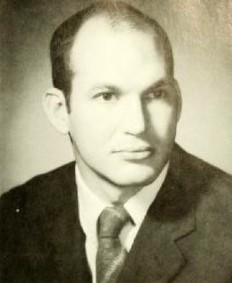contact
F 410-706-3214
Office hours are 8am - 5pm Monday through Friday.
Click on the button above to update your contact info with the School of Dentistry and receive alumni news.
Dr. Norman Tinanoff, DDS ‘71
 Dr. Norman Tinanoff, Class of 1971, could have been a billionaire.
Dr. Norman Tinanoff, Class of 1971, could have been a billionaire.
While serving at the Army Institute of Dental Research at Walter Reed, Dr. Tinanoff was doing research on fluoride products and discovered that a specific fluoride product, stannous fluoride, had anti-plaque and anti-gingivitis properties.
“Today, if you go buy toothpaste in the store, there are two kinds you can buy – one with sodium fluoride and one with stannous fluoride,” Dr. Tinanoff explained. “The one with stannous fluoride is because of me and the joke is that if I had patented it, I would be a billionaire now.”
Alas, Dr. Tinanoff did not patent stannous fluoride and, by his own accounts, is not a billionaire, but he has still had a remarkable professional career thanks to his education and employment at UMSOD.
“I grew up in Baltimore, so it was a logical choice [to attend UMSOD] because I was an in-state student and in-state tuition was $500,” Dr. Tinanoff said. “How could you beat that? It was a no-brainer for me.”
After graduating from UMSOD in 1971, Dr. Tinanoff spent two years at the University of Iowa, earning both a master’s degree and a certificate in Pediatric Dentistry, then spent an additional year there doing a research fellowship. Then, because he had signed up for the Army back in 1967 and had been serving as a reserve officer for the previous seven years, he needed to honor his commitment to the Army and asked to do so at the Army Institute of Dental Research at Walter Reed. After spending two years there he became an assistant professor of Pediatric Dentary at the University of Connecticut, rose the ranks there to full professor, and left in 1998 to make his return to UMSOD as the chair of the Pediatric Dentistry department, a position he held until 2016 when he transitioned to a part-time role.
“The greatest joy I have is writing clinical guidelines and occasionally organizing large conferences. I also really like working with the residents and being around them, and they like learning from me, so that keeps me young.”
Looking back on his time as a student and comparing it to his time as a faculty member, Dr. Tinanoff marvels at how much has changed in the education of dentists, specifically the focus now on science and scholarship and less on the technical side. “Education has changed completely,” he said. “It was very technical, less scientific, and that has changed completely now. The technical skills are there but not quite as important.”
“I’ll give you an example – when I was a student at Maryland to fulfill the crown and bridge requirement you had to do everything – the preparation, the impression, waxed it, cast it, polished it -- everything. Now the students do the preparation, take the impression, and then send it to the lab, and it comes back to them as a finished product.
So we have a completely different kind of training now – more evidence-based, more scientific, more scholarship. It’s also a totally different atmosphere with the students and teacher as partners rather than the vertical integration that we had all those years ago.”
Dr. Tinanoff also remembers how difficult a time it was to attend a school in downtown Baltimore in the late 1960s and early 1970s.
“Not only was the Vietnam War going on, but in 1968 Martin Luther King was killed and we had riots here in Baltimore,” he said. “Downtown Baltimore burned, maybe a third of the city burned, and we didn’t go to school for two weeks because it was very dangerous.”
“In the old building, the chairman of Pediatric Dentistry at that time had a bullet hole in his window. The new building was also under construction at that time and the first two floors were supposed to be windows and they all got bricked in because of that. It was a very difficult time for everyone.”
But, as Dr. Tinanoff explains, he loved being there then, loves being here now, and has no plans to retire anytime soon.
“Being here is my vacation,” he said. “I love coming to work. I really enjoy learning and I really enjoy sharing knowledge with others.”
When asked to impart some wisdom and advice to the current dental students, Dr. Tinanoff hopes they realize their education is not complete when they graduate.
“When the students graduate, they are just beginning to learn,” he said. “They should have a good mentorship after they leave dental school and post-graduate training to polish their skills. When I graduated, I did two years of pediatric dentistry, a one-year fellowship, and then I was in the Army for two years; and it was only in my second year in the Army when I said, ‘Now I understand what I’m doing.’ So it takes time to get that perspective, it takes time to understand the big picture. Not what each tooth requires, but the big picture of healthcare.”





